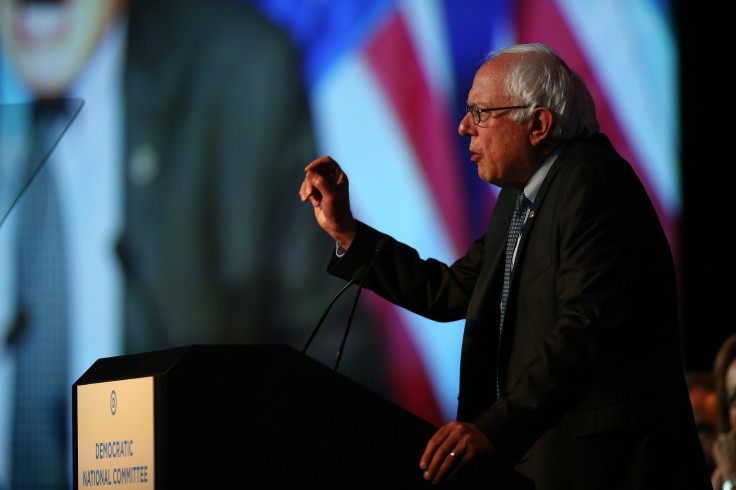Bernie Sanders Says Drug Prices Are Too High, And He's Introducing A Bill To Bring Them Down

Bernie Sanders, the independent U.S. senator from Vermont campaigning for the 2016 Democratic nomination for president, is expected to soon introduce a bill to curb skyrocketing drug prices in the country, where prescription medications cost more than in any other nation.
“Americans should not have to live in fear that they will go bankrupt if they get sick,” Sanders said in a statement posted on his Senate website Tuesday. “People should not have to go without the medication they need just because their elected officials aren’t willing to challenge the drug and health-care industry lobby,” he said. According to his statement, the $230 million pharmaceutical companies spent lobbying Congress in 2014 outstripped the spending by any other industry by roughly $65 million.
Sanders’ bill would grant authority to the Department of Health and Human Services, the operator of Medicare, to negotiate with drug companies over prices. The department is currently forbidden by law from doing so. It would also ease the importation of cheaper drugs from other countries and demand greater transparency by pharmaceutical companies concerning how drugs are priced.
Americans pay the highest prices for prescription drugs in the world -- by far. pic.twitter.com/G3PjorO3cZ
— Bernie Sanders (@SenSanders) September 1, 2015“Between our government’s unwillingness to negotiate prices and its failure to effectively fight fraud, it’s no wonder drug prices are out of control,” Sanders said. His statement claimed that drug prices in the U.S. jumped by 12.6 percent in 2014, citing the Centers for Medicare and Medicaid Services.
But the actual report by CMS said something slightly different -- that in 2014 prescription drug spending, not drug prices, grew by 12.6 percent, which was still considerably more than the 2.5 percent increase in spending recorded in 2013. The jump in spending last year has been blamed largely on expensive specialty drugs, such as treatments for hepatitis C.
Still, the consensus of interested parties across the country, ranging from academics and media pundits to physicians and patients, does indicate prescription drugs are considered far too expensive. Prices of both common and specialty drugs have soared in the past decade. From 2007 to 2014, the cost of Xyrem, a drug for narcolepsy, soared by more than 800 percent. The expense for Humulin, a treatment for diabetes, rose by 354 percent. And the price of EpiPens, used to quell allergic reactions, jumped by 222 percent, Bloomberg News reported in May 2014. Several drug major companies analyzed by Bloomberg had multiple drugs whose prices increased 75 percent or more.
A poll on Sanders’ Senate website asks visitors two questions: Do they believe the price of prescription drugs is “unreasonably high”? And should the U.S. government “take action to lower drug costs?” Among the 5,651 responses accrued through this unscientific sampling as of Wednesday morning, 99 percent indicated drug prices were too high and 97.9 percent suggested the government should take action to lower them.
Drug companies say their high prices are crucial for them to continue the research and development required to producing new medications. “We believe our prices reflect the value of our medicines and provide the necessary incentives for ongoing R&D investments,” Andrew Topen, a representative of the pharmaceutical company Pfizer Inc., told Bloomberg News.
© Copyright IBTimes 2024. All rights reserved.






















